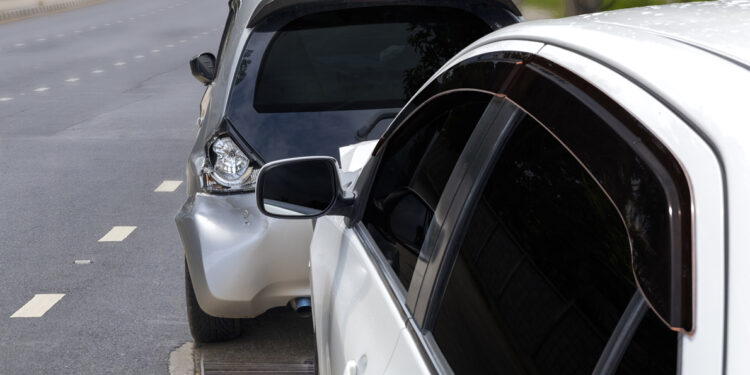10 Tips For Coping With Anxiety After A Car Crash

Experiencing a car crash can be a deeply traumatic event that can leave lasting emotional and psychological effects. It’s not uncommon to feel anxious and stressed after a car crash, as the experience can shake your sense of safety and security.
Coping with anxiety after a car crash is essential for your mental health and overall well-being. Fortunately, there are steps you can take to help you manage and cope with the anxiety that may arise in the aftermath of a car crash.
In this article, we’ll explore strategies that you can implement to cope with anxiety, heal and move forward from the aftermath of a car crash.
Why It’s Important Not to Suppress Emotions
After a car crash, you may be tempted to suppress emotions. This means that you intentionally avoid, ignore, or push down emotional experiences or reactions. This can happen for various reasons, such as societal norms, cultural expectations, personal beliefs, or past conditioning.
However, suppressing emotions can have several negative effects on your mental and physical health. Here are some potential consequences of suppressing emotions:
Increased Stress
When emotions are suppressed, they can build up and result in increased stress levels. Emotions are a natural part of the human experience, and suppressing them can lead to unresolved emotional tension, which can manifest as stress in the body. Chronic stress can have detrimental effects on physical health, including weakened immune function, increased risk of chronic diseases, and mental health issues such as anxiety and depression.
Emotional Dysregulation
Suppressing emotions can disrupt the natural process of emotional regulation, which involves acknowledging, expressing, and processing emotions in a healthy manner. When emotions are suppressed, they may resurface unexpectedly and inappropriately, leading to emotional dysregulation. This can manifest as sudden outbursts of anger, mood swings, or difficulty managing emotions in a healthy way.
Impact on Mental Health
Suppressing emotions can contribute to the development or exacerbation of mental health issues. Emotions are a fundamental part of human experience, and denying or suppressing them can lead to emotional distress, low self-esteem, and difficulties in relationships. Over time, this can contribute to the development of mental health conditions such as anxiety, depression, and even post-traumatic stress disorder (PTSD).
It’s important to note that suppressing emotions is not a sustainable or healthy long-term coping mechanism. It’s crucial to find healthy ways to acknowledge, express, and process emotions in order to maintain good mental and physical health.
Seeking support from a trusted friend, family member, or mental health professional can be beneficial in developing healthy emotional regulation skills and coping with challenging emotions in a constructive manner. It’s okay to feel and express emotions, and taking steps toward emotional well-being can contribute to a healthier and more fulfilling life.
For some people, getting legal advice and understanding their rights to compensation can help to bring a sense of control and bring acknowledgment of the impact that the accident had on them.
1. Be Patient with Yourself
Coping with anxiety after a car crash is a process, and it takes time. Be patient with yourself and practice self-compassion. It’s okay to have ups and downs, and it’s important to acknowledge your progress, no matter how small it may seem. Healing from the emotional impact of a car crash is a journey, and it’s important to be gentle with yourself as you navigate through it.
2. Practice Self-Care
Taking care of your physical and mental well-being is crucial when coping with anxiety after a car crash. Make sure to prioritize self-care activities. Get enough sleep to allow your body and mind to rest and rejuvenate. Eat well and stay hydrated to support your physical health. Engage in regular physical exercise, such as going for walks or practicing yoga, to release tension and promote relaxation. Taking care of your body can help regulate your emotions and reduce anxiety.
3. Seek Support
Don’t be afraid to reach out for support from friends, family, or a therapist. Talking about your experience and emotions with someone you trust can help you process your feelings and gain perspective.
After being in an accident, and especially when someone else caused it, it can be cathartic to share your thoughts and fears with others who can provide comfort and reassurance. If you find that your anxiety is interfering with your daily life, consider seeking professional counseling. A therapist can provide you with tools and coping strategies to manage your anxiety effectively.
4. Educate Yourself
Knowledge can help reduce anxiety. Educate yourself about car accidents and their aftermath. Research statistics, safety measures, and driving regulations. Understanding the risks and precautions associated with driving can provide you with a sense of control and help you make informed decisions. This knowledge can also dispel misconceptions and irrational fears that may be contributing to your anxiety.
5. Gradual Exposure
Gradual exposure to driving or being in a vehicle can help desensitize your anxiety. Start with short drives in familiar areas or as a passenger with someone you trust. Gradually increase the duration and distance of your drives as you feel more comfortable. Exposure to the situation that triggers your anxiety in a controlled and gradual manner can help you build confidence and reduce anxiety over time.
6. Practice Relaxation Techniques
Relaxation techniques can help calm your nervous system and lower stress levels. Deep breathing, meditation, progressive muscle relaxation, or other relaxation techniques can help you manage anxiety symptoms. Incorporate these techniques into your daily routine, especially when you feel anxious. Practice them regularly to help regulate your breathing, heart rate, and overall state of mind.
7. Challenge Negative Thoughts
Anxiety after a car crash may be accompanied by negative thoughts or catastrophic thinking. Challenge these thoughts by asking yourself if they are based on facts or assumptions. Are they grounded in reality, or are they driven by fear? Practice positive self-talk and replace negative thoughts with more realistic and rational ones. For example, if you catch yourself thinking, “I’ll never be able to drive again,” replace it with a more balanced thought like, “I feel anxious about driving, but I can take small steps to regain my confidence.”
8. Avoid Triggers
Identify and avoid triggers that may exacerbate your anxiety. This may include avoiding certain roads or routes that remind you of the car crash, driving during rush hour, or being in situations that make you feel unsafe. While avoidance is not a long-term solution, it can be helpful in the short term to reduce anxiety and prevent flashbacks or panic attacks. Gradually work towards facing your triggers in a controlled and supportive environment.
9. Create a Safety Plan
Creating a safety plan can help you feel more prepared and in control. Plan routes that feel safer to you, have a list of emergency contacts readily available, and make sure your phone is charged when driving. Knowing that you have a plan in place can provide you with a sense of security and confidence.
10. Practice Mindfulness
Practicing mindfulness can help you stay present and focused on the moment rather than getting lost in anxious thoughts about the past or future. Mindfulness involves paying attention to your thoughts, feelings, and sensations without judgment. You can practice mindfulness while driving by staying fully aware of your surroundings, using all your senses to engage with the experience, and not getting lost in anxious thoughts.
Mindfulness techniques, such as deep breathing or body scan exercises, can also be practiced outside of driving to help you manage anxiety in other areas of your life.
Coping with anxiety after a car crash can be challenging, but it’s important to prioritize your mental health and well-being.
It’s okay to seek professional help if needed and remember that healing takes time. With time, self-care, and support, you can learn to cope with anxiety after a car crash and regain your confidence on the road.










